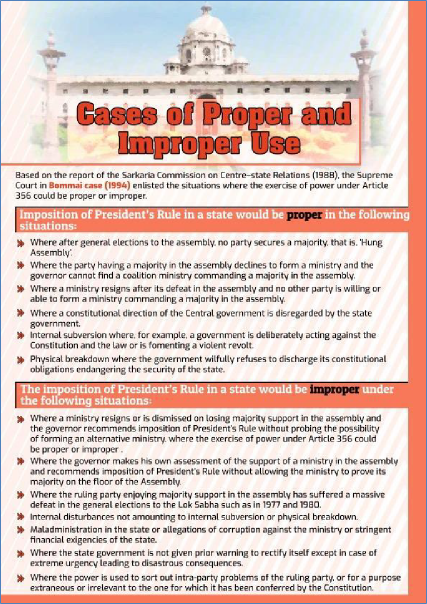S.R. Bommai case Judgment,1994
♤ As per the Supreme Court, Article 74(2) (which states that advice given by CoM cannot be enquired into by judiciary) does not impose any restriction on the court from examining the material on basis of which President formed his satisfaction.
♤ The Proclamation under Article 356 is not immune from judicial review. The Supreme Court or the High Court can strike down the Proclamation if it is found to be mala fide or based on wholly irrelevant or extraneous grounds.
♤ The power conferred by Article 356 upon the President is a conditioned power. It is not an absolute power. It also stated that the power of President is limited by article 356(3), which requires parliamentary approval of the emergency. This implies that President shall not dissolve the assembly till the time it is approved by the Parliament.
♤ It stated that as far as possible the Centre should issue a warning notice to the erring state asking for reasons

♤ Once the proclamation is issued, the Government has to go. There is no room for holding that the
President can take over some of the functions and powers of the State
Government while keeping the State Government in office. There cannot be two Governments in one sphere.
♤ Secularism is a basic feature of the constitution and its violation by the State government makes it liable to be dismissed as per article 356.
♤ The Court also reiterated its power to provide remedy and
reinstate the
government if intentions are proved malafide.
